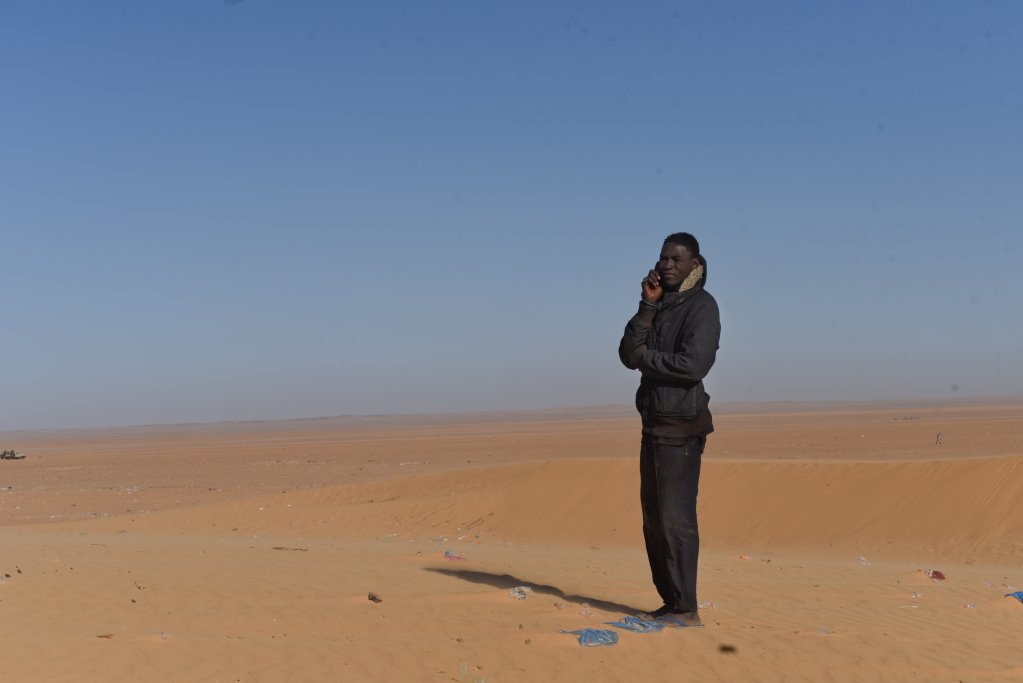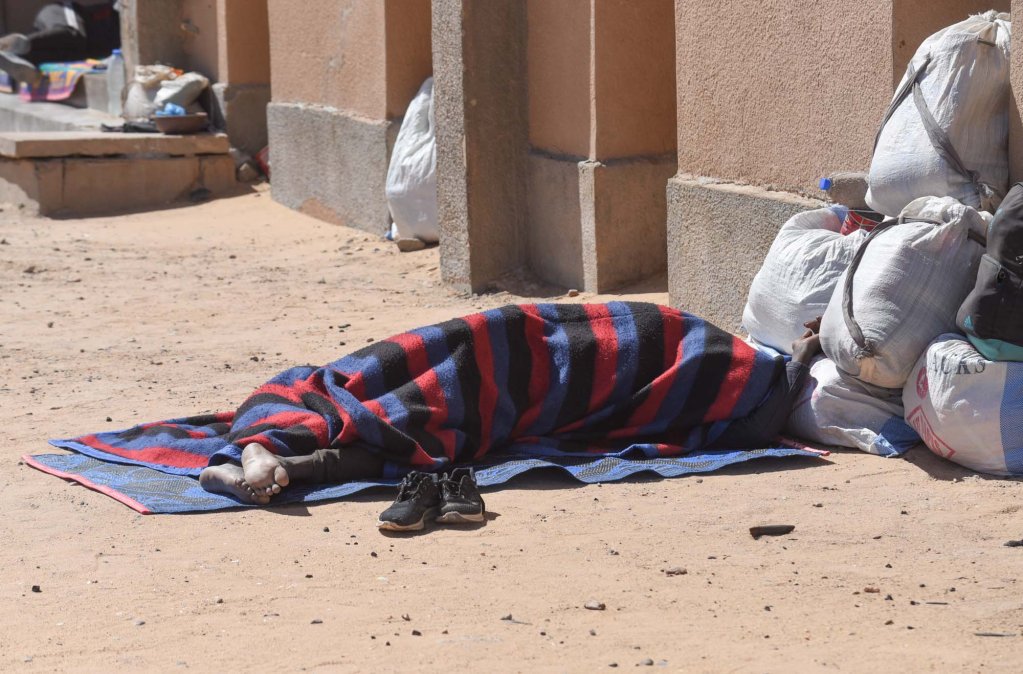The Algerian authorities reportedly expelled 1,141 migrants on Saturday (April 19) to northern Niger. Those expelled included 41 women and 12 children, local NGOs told reporters.
Reports on the Spanish and Portuguese news agencies EFE and LUSA suggest that migrants from 17 different countries, including Nigeria, Benin, Burkina Faso, Cameroon, Mali, Gambia, Guinea, Niger, Somalia, Sudan, and Bangladesh were expelled from Algeria on Saturday (April 19).
The organization Alarme Phone Sahara (APS) told reporters that there were 41 women and 12 children among the 1,141 migrants expelled. A spokesperson for the NGO said the migrants were taken to the desert and abandoned there at a place known as "Point Zero," about 15 kilometers from the Nigerien town of Assamaka, in the north of the country.
According to APS and other local organizations, the migrants were not provided with either water or food, or anything to protect them from the suffocating heat.
The Spanish news agency EFE indicated that more groups are expected to be expelled in this way in the coming days. In August last year, Alarme Phone Sahara published a report in which they accused the Algerian authorities of carrying out the deportations in "brutal conditions."
In 2022, reporting from InfoMigrants also confirmed similar experiences from migrants who were interviewed in Niger following their deportation.
Read AlsoAlarming rise in shipwrecks on Algerian migratory route to Spain
Around 4,000 expelled since the beginning of April
APS national coordinator Abdou Aziz Chehou estimates that around 4,000 migrants may have been expelled in this way since the beginning of April.
Those expelled, reported LUSA, are being cared for by national and international NGOs, including the UN Migration Agency IOM, the medical humanitarian charity Doctors without Borders (MSF), Alarme Phone Sahara, Coopi and Karakara. Services offered by the organizations include accommodation, voluntary repatriation, medical assistance, food and drinking water.

However, after the expulsion, the NGOs are finding that many of the migrants left at Point Zero still have to walk 15 kilometers and are often very exhausted when they arrive in Assamaka, looking for help. Some show signs of injuries or violence on their bodies. The NGOs say there are often pregnant women or women with small children in the groups.
Read Also60 detained in Algeria return to Morocco
Exhausted and sometimes injured
Migrants told an anonymous source at the local NGO Coopi that many of them faint with exhaustion along the journey and some even die before they can reach help. The NGOs have been trying to reach Point Zero with tricycles to pick up as many migrants as they can if they hear that a group has been left in the desert.
According to APS coordinator Chehou, some of the migrants even have valid travel documents, and sometimes documents testifying to permanent residence status in Algeria or employment, reports LUSA. Chehou said that during the police raids, sometimes these documents are overlooked, "which constitutes a serious violation of international law," he added.
Read AlsoNiger: Libya expels over 400 Nigerien migrants to desert
Deaths at the border?
On April 22, the organization Refugees in Libya, which has now taken to advocating for migrants all across North Africa, circulated a video on the platform X. In it, small groups of men sit on what looks like a desert dune or slope while three men lie, apparently dead, on the dusty floor in the foreground.
The migrants speaking off camera are speaking French, and one man picks up the limbs of the three men on the floor to try and show they are dead. The voice off camera appears to say to viewers: "Look! They are there [presumably referring to the men lying on the floor]. The Arabs [in other testimonies migrants from sub-Saharan African countries describe Tunisians and Algerians as Arabs] are not good. They are not good. Look, we are in the middle of the desert like this." The speech continues, but the language changes to a language shared by some of the men.
The organization states on X that the video is showing "mass expulsions and abandonment of human beings in the desert by Algerian authorities." It adds that "at least three people are confirmed dead in this footage."
Refugees in Libya continues, saying "Europe continues to pay North African countries: Libya, Tunisia, Algeria and Morocco to carry out these violent crimes not on its name but in the name of 'border control.'"
InfoMigrants asked Deutsche Welle's specialized verification department to look into the veracity of the video. The footage is not dated, and nor does Refugees in Libya state when it might have been filmed. DW contacted Refugees in Libya for more information, but at time of publication had not yet received a response. InfoMigrants could not independently confirm the veracity of the video.

According to the Moroccan news portal Yabiladi, Algeria deported around 30,000 migrants who they said were living irregularly in the country in 2024. In 2023, that number is estimated to be around 26,000. Malians, especially Tuaregs, are reported to be exempt from this treatment, reports Yabiladi, for "political reasons." The authorities in Algiers support the armed Azawad movement that is opposing the transitional government in Mali, following a coup.
Read AlsoAlgeria: 14 dead and five missing near Libyan border
'We are still traumatized by this experience'
On March 8, 2025, Alarme Phone Sahara published a video testimony from an Ivorian migrant calling herself Rose. She said she had been deported from Algeria to Assamaka on the border of Niger.
According to Rose, she had hoped to reach Morocco, because it can be more welcoming to sub-Saharan African migrants. But, she said she experienced violence and discrimination in both Algeria and Tunisia on her journey. During her testimony, Rose shows her feet and toenails, saying, "they hit women like they hit boys in those countries." Rose also says that in Tunisia, her papers and passport were torn up in front of her eyes.
In Tunisia and Algeria, says Rose, all their money and phones were also taken from them.,"They left us with nothing, no food, no water, nothing," says Rose. "We are still traumatized by this experience."
